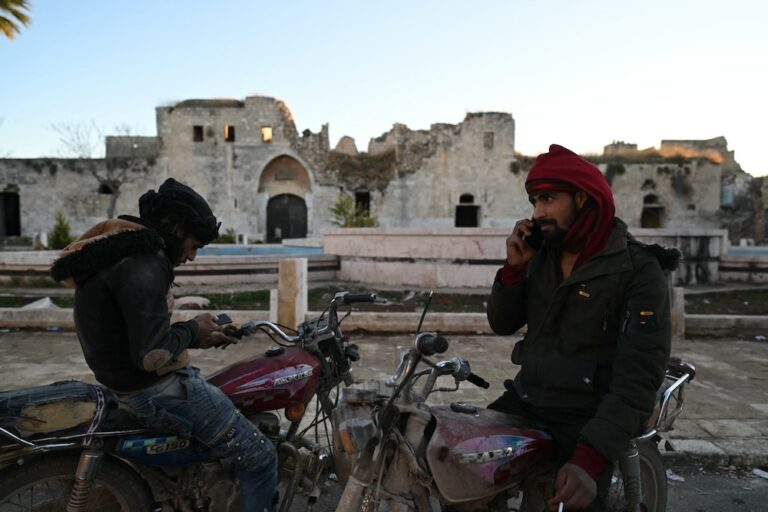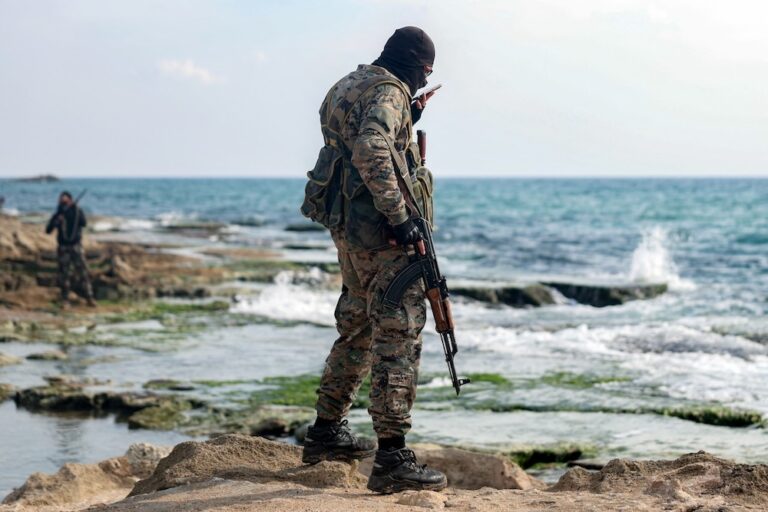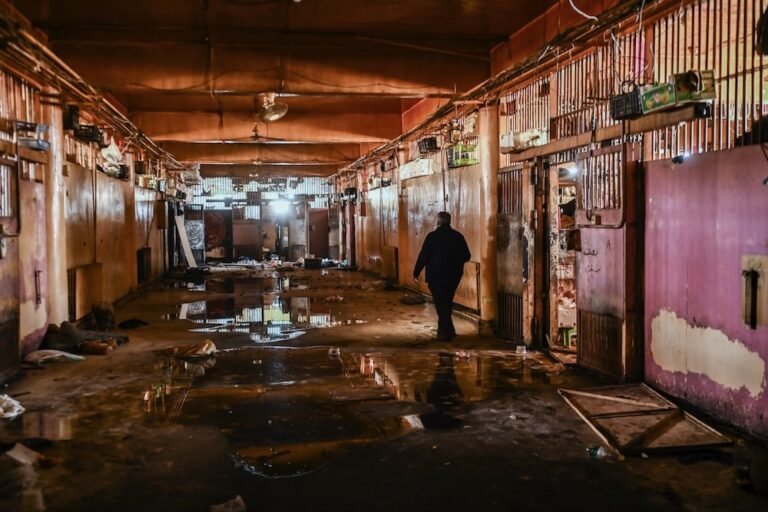(RSF/IFEX) – The issuance of a more repressive press law following the recent arrests of important political figures and members of civil society demonstrates once again the Syrian authorities’ refusal to allow the free flow of information. The authorisations granted to publish new newspapers and the holding of meetings by intellectuals had raised hopes of […]
(RSF/IFEX) – The issuance of a more repressive press law following the recent arrests of important political figures and members of civil society demonstrates once again the Syrian authorities’ refusal to allow the free flow of information. The authorisations granted to publish new newspapers and the holding of meetings by intellectuals had raised hopes of increased freedom of expression in the first quarter of 2001. “Promulgated by the Syrian president, Bashar al-Assad, this new law increases sentences for press offences, legalises censorship and increases repression. It will allow for the arrest of those calling for more reforms and freedom. Six months ago, we thought that Bashar al-Assad was prepared to abandon the dictatorial methods inherited from his father, but it is now clear that repressive politics are back. The door is now open to all kinds of abuse,” stated RSF Secretary-General Robert Ménard.
Important political figures and members of civil society, including the banned Communist Party’s (political bureau) leader Riad el Turk, Members of Parliament Maamoun el-Homsi and Riad Seif and economist Aref Dalila, were arrested in recent weeks. El Turk is charged with having “violated the constitution.” El-Homsi and Seif were charged with wanting to stop modernisation reforms and undermining the state, and Dalila was charged with breaking the law.
The new press decree, issued on 22 September, gives a veto to the prime minister if he considers that a new publication “undermines the general interest.” Journalists “reporting false information and falsifying documents” may face prison sentences of one to three years and heavy fines. “Those who contact a foreign country and receive money in exchange for propaganda for that country or its projects” will be punishable by jail terms ranging from six months to two years. Moreover, any publication “calling for a change in the constitution by unconstitutional means, and for a revolt against the authorities,” will have its licence cancelled. The publication of “secret parliamentary documents, articles and information undermining national security or the unity of society, or documents relating to the army,” will be banned. Untill now, a less strict law, dating from 1949, governed press affairs.
Journalist Nizar Nayouf, who was released in May after spending nine years in detention, will be directly affected by this new law if he returns to Syria. An arrest warrant was issued against him in September. The journalist is charged with “trying to change the constitution by illegal means and issuing false reports from a foreign country.” Since his release, he has voiced critical opinions, through the Arabic media, on the Syrian regime. Another journalist, ‘Adel Isma’il, is currently imprisoned in Syria for having “issued false information.” Arrested in 1996, Isma’il, who worked for the Lebanese daily “Al Raïa”, was sentenced to ten years’ imprisonment in Seydnaya prison, in Damascus (see IFEX alerts of 12 and 7 September, 16 July, 25, 22 and 20 June, 7 May, 30, 25 and 4 April, 1 March, 27 and 15 February and 26 January 2001, 20 November, 28, 11 and 6 July, 12 June, 30, 12 and 2 May 2000, 23 November, 25 and 4 October, 20 and 1 April and 10 March 1999, 20 November, 29, 17 and 10 September 1998 and 25 September 1996).
RSF recalls that Syrian President al-Assad, is on the organisation’s list of press freedom predators.


